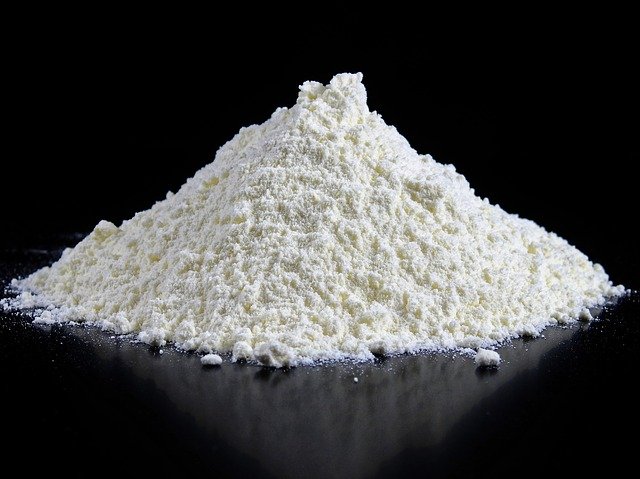Herbs and Spices - Potato Starch, Flakes

Potato Starch, Flakes
Potato Starch
Potato starch is starch extracted from potatoes. The cells of the root tubers of the potato plant contain starch grains (leucoplasts). To extract the starch, the potatoes are crushed; the starch grains are released from the destroyed cells. The starch is then washed out and dried to powder.
Potato starch contains typical large oval spherical granules ranging in size between 5 and 100 μm. Potato starch is a very refined starch, containing minimal protein or fat. This gives the powder a clear white colour, and the cooked starch typical characteristics of neutral taste, good clarity, high binding strength, long texture and a minimal tendency to foaming or yellowing of the solution.
Starch derivatives are used in many recipes, for example in noodles, wine gums, cocktail nuts, potato chips, hot dog sausages, bakery cream and instant soups and sauces, in gluten-free recipes,[3] in kosher foods for Passover[4] and in Asian cuisine.[5] In pastry, e.g. sponge cake, it is used to keep the cake moist and give a soft texture. It is also occasionally used in the preparation of pre-packed grated cheese, to reduce sweating and binding.
Potato Flakes
Potato Flakes are commonly used in households worldwide for convenient preparation of Instant Mash Potato. Industrial food processors also use potato flakes as an ingredient in the production of potato snack foods.
For developing countries where limited potato processing facilities are available, potato flake (dehydrated mashed potato) projects can be a major way to preserve potato to improve availability.
The texture of the reconstituted product is acceptably mealy, because of a precooking and cooling treatment to which the potatoes are subjected during the processing and the additives of a mono-glyceride emulsifier.
Benefits:
1. Blood Sugar Helper: As a resistant starch, potato starch has been shown to be helpful to blood sugar regulation.
2. Boosts Good Bacteria: As a resistant starch, potato starch acts as a prebiotic in the body, which means that it actually feeds the good bacteria in your intestine.
3. Gluten-Free : For anyone trying to avoid gluten, one of the health benefits of potato starch is the fact that it is is naturally gluten-free.
4. Easy to Cook With: Once it’s cooked, this starch is said to have a lot of desirable culinary characteristics, including “neutral taste, good clarity, high binding strength, long texture and a minimal tendency to foaming or yellowing of the solution.”
Potato Starch serving ways:
• Starch obtained from potatoes is generally used to thicken broth, soup, any sauce or gravy and is much preferred instead of cornstarch due to its high boiling point.
• Also used in baking dough for cakes to add moisture to it without having limp consistency. It also makes the baked food look glossy on its surface.
• It can be used to substitute potato flour. Mix it with equal quantity of wheat or rice flour for the similar results.
• The most common use is as an additive in noodles, fries, sauces, bakery products, processed meat and cheese as a binder and texturizer
Potato Flakes serving ways:
• Make extra-crispy chicken, fish, or pork.
• Bake soft & fluffy biscuits, rolls, and focaccia.
• Whip up light-as-air gnocchi.
• Make moist and tender meatloaf.